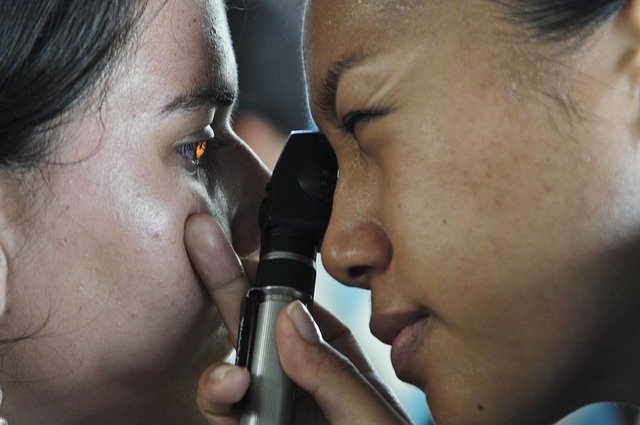Medication Delivery Driver Career Guide and Requirements
Pharmacy delivery driver careers offer a practical role in ensuring medications reach patients safely and on time. This position combines reliable transportation with customer service, making it an important part of supporting community healthcare services.

The healthcare industry increasingly relies on delivery services to meet patient needs, creating opportunities for dedicated professionals who want to bridge the gap between pharmacies and patients. Medication delivery drivers serve as essential healthcare workers, ensuring that vital prescriptions reach patients who may have mobility limitations, busy schedules, or transportation challenges.
How to Become a Pharmacy Delivery Driver
Entering the pharmacy delivery field requires meeting specific qualifications and completing necessary paperwork. Most employers require drivers to be at least 18 years old with a valid driver’s license and clean driving record. A high school diploma or equivalent is typically expected, though some positions may accept candidates without formal education requirements.
The application process usually involves background checks, drug screenings, and verification of driving history. Many employers also require proof of vehicle insurance and registration if you’ll be using your personal vehicle for deliveries. Some companies provide delivery vehicles, which may require additional training on company-specific equipment and protocols.
Pharmacy Delivery Driver Training and Requirements
Training programs vary by employer but generally cover medication handling procedures, patient privacy regulations, and delivery protocols. Most training occurs on-the-job and includes learning about HIPAA compliance, proper medication storage during transport, and customer service standards.
Drivers must understand temperature-sensitive medication requirements, as some prescriptions need refrigeration or protection from extreme temperatures. Training typically covers route optimization, GPS navigation systems, and documentation procedures for successful deliveries. Emergency protocols for handling medication spills, vehicle breakdowns, or delivery complications are also standard components of training programs.
Certification requirements may include completion of company-specific training modules and periodic refresher courses. Some employers require drivers to obtain specialized certifications for handling controlled substances or high-value medications.
Skills Needed for Pharmacy Delivery Driver Careers
Successful pharmacy delivery drivers possess a combination of technical and interpersonal skills. Strong navigation abilities and familiarity with local geography help ensure efficient route planning and timely deliveries. Attention to detail is crucial for verifying patient information, medication accuracy, and delivery addresses.
Communication skills are essential when interacting with patients, pharmacy staff, and healthcare providers. Drivers must maintain professionalism while handling sensitive medical information and addressing patient concerns. Physical stamina is important for lifting packages, walking to delivery locations, and spending extended periods driving.
Time management skills help drivers maintain delivery schedules while ensuring accuracy and patient satisfaction. Basic technology skills are necessary for using delivery tracking systems, mobile applications, and GPS navigation tools.
| Position Type | Employer Category | Hourly Rate Estimation |
|---|---|---|
| Part-time Driver | Independent Pharmacy | $12-16 per hour |
| Full-time Driver | Chain Pharmacy | $14-18 per hour |
| Specialized Delivery | Medical Supply Company | $16-22 per hour |
| Contract Driver | Delivery Service Platform | $15-20 per hour plus tips |
Prices, rates, or cost estimates mentioned in this article are based on the latest available information but may change over time. Independent research is advised before making financial decisions.
Career Advancement Opportunities
Pharmacy delivery positions often serve as entry points into broader healthcare careers. Experienced drivers may advance to supervisory roles, training new employees, or managing delivery operations. Some drivers transition into pharmacy technician positions, leveraging their familiarity with medications and pharmacy operations.
Continuing education opportunities may include pharmacy technician certification programs, logistics management courses, or healthcare administration training. Building relationships with healthcare providers and demonstrating reliability can lead to recommendations for advancement within the healthcare industry.
Work Environment and Schedule Flexibility
Medication delivery work offers various schedule options, from part-time positions fitting around other commitments to full-time careers with benefits packages. Many positions provide flexibility for students, retirees, or individuals seeking supplemental income.
Work environments vary from urban settings with high-density delivery routes to rural areas requiring longer travel distances between stops. Weather conditions, traffic patterns, and seasonal medication demands affect daily work experiences. Drivers typically work independently but maintain regular communication with pharmacy staff and dispatch coordinators.
The role combines outdoor driving time with brief indoor interactions at delivery locations. Safety protocols protect both drivers and patients, including procedures for handling emergencies, securing vehicles, and maintaining medication integrity throughout the delivery process.
This article is for informational purposes only and should not be considered medical advice. Please consult a qualified healthcare professional for personalized guidance and treatment.




